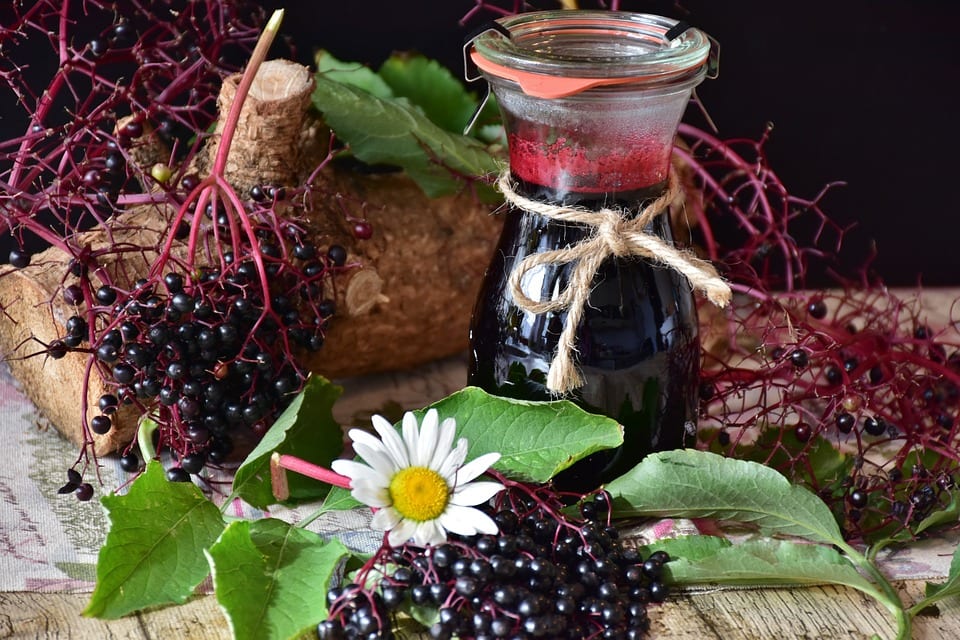I don’t care who you are, having a cold is no fun. If you’re like me, you’re reluctant to take over the counter meds because they make you feel weird (or maybe you’re pregnant or nursing or have other reasons) – but most of us can’t afford to wallow in our misery using up sick days like candy. Right?
Well, some people claim to have found the answer in the unassuming elderberry.
And here I thought it was only good for making wine.

Image Credit: Pixabay
It turns out that using elderberry to treat illness has been around in folk circles since basically forever (Hippocrates mentioned it, even), so perhaps your grandmother or a great aunt used to feed it to you as a kid. That said, there does seem to be some science to back up claims the berry has medicinal value.
A small Australian study recently found that people who did not receive elderberry at the first symptoms of a cold were sick for several days longer and had more potent symptoms than those who took between 600 and 900 milligrams of the syrup.
Similarly, a small Norwegian study found that taking elderberry could reduce the duration of the flu.

Image Credit: Pixabay
Most traditional medicines are derived from plants, so the idea that elderberry could assist in healing isn’t exactly far-fetched (though it likely doesn’t cure heart disease or any of the other more outlandish claims people make). But FYI, companies that sell it (like Sambucol) are required by the FTC to sell their products as “dietary supplements” as opposed to actual pharmaceuticals.
Sambucol, for example, claims that their product “arms you with some of the best protection nature has to offer” and “when taken at the first sign of cold and flu, it can help in letting the body heal iteslf.
If you’re thinking about making your own elderberry syrup at home, take care – the berries are mildly toxic and require special preparation to make the syrup safe to consume.
Kevin Curran, former head of medical plants research t the University of San Diego, advises caution because science isn’t clear on how exactly elderberry works in the body – but he also believes there could be something to all of the hype.
“Like with most plant research, there’s a scarcity of human clinical trials especially in terms of mechanism.”
The sparse laboratory studies seem to suggest that elderberry shifts the activity of cytokines, the body’s signaling molecules for ramping up the immune system, which could explain how it assists us in fighting an infection. Elderberries are also high in antioxidants, though the science is still out on how they might be helping the body fight colds and flus.
Long story short? There are centuries of anecdotal evidence that taking elderberries in some form can help you get rid of your cold or flu quicker – so the next time you’re down with a nasty bug, you might want to give it a try. It’s certainly not going to hurt, and it could help.
What have you got to lose?






